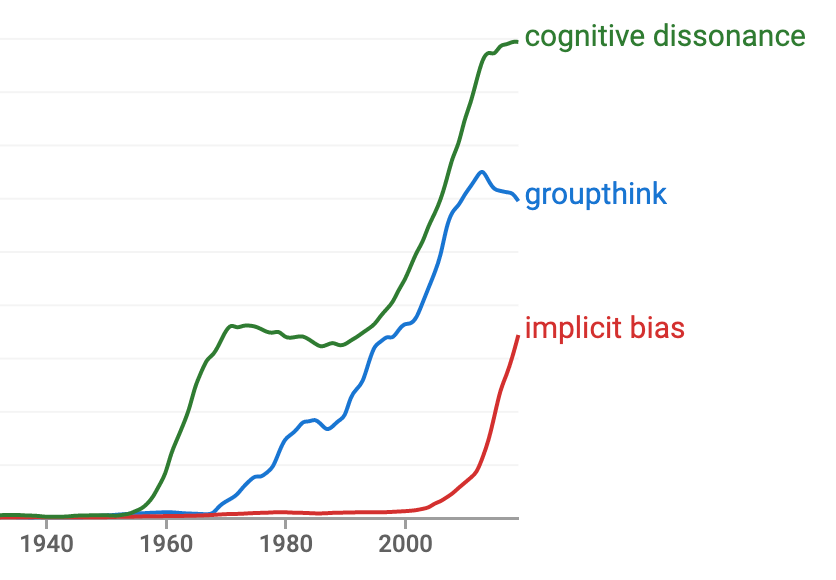Lessons for avoiding groupthink
Issue 32: Why solutions to groupthink involve more leadership, not less; liking for open-minded political allies; when people support economic redistribution; and a belated Happy Halloween!
Everyone knows—or thinks they know—the concept of groupthink. An overly chummy group of decision-makers care more about getting along than questioning their assumptions and end up making disastrous decisions. Groupthink is routinely invoked—by pundits, policy-makers, professors, and the public—every time there seems to have been wide-spread consensus around something they don’t agree with or what later turns out to have been a bad decision.
Indeed, the term has taken off in a way that is rare in psychology, coming in somewhere between cognitive dissonance and implicit bias in the public discourse. But we have a new column in the The Wall Street Journal this week explaining that people often still fail to fully understand the psychology of groupthink. As a consequence, many groups and organizations don’t optimize healthy practices for rooting out this problem and harnessing the power of groups.
Irving Janis, who wrote the book on groupthink, formally defined it as “a mode of thinking tha…




